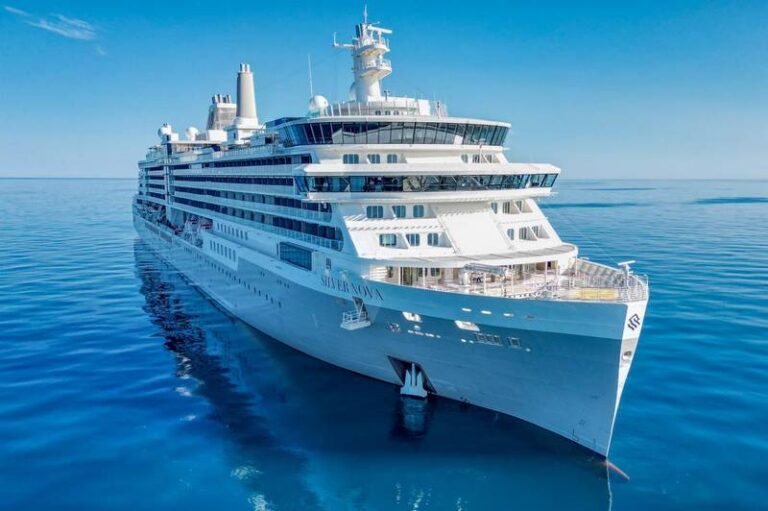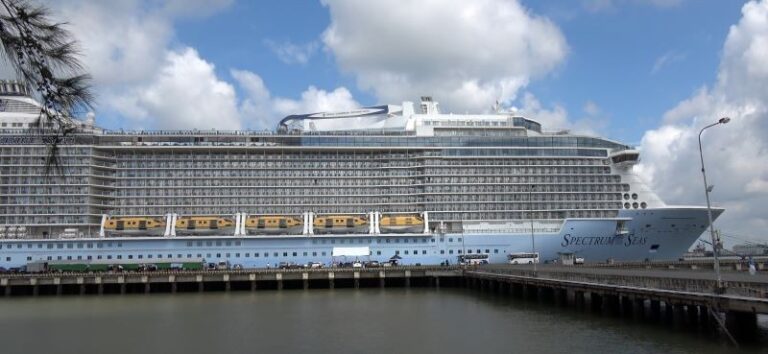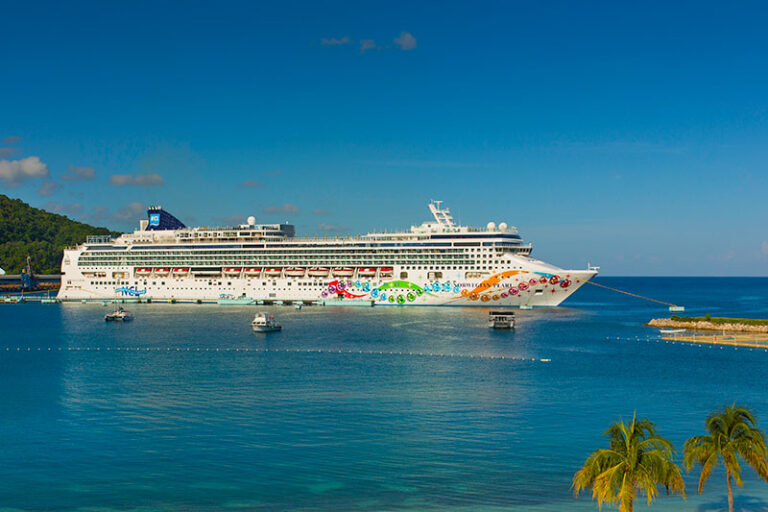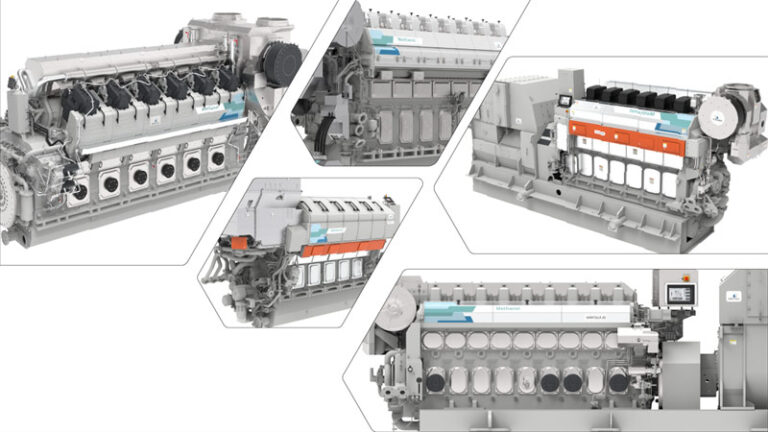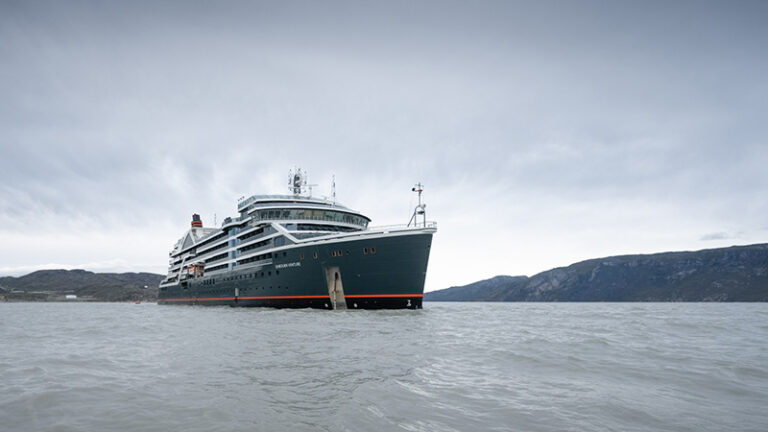Polarstern’s Successful Expedition to the North Pole with the LFC Biodigester
Imagine embarking on an extraordinary expedition to the North Pole, where the stunning Polarstern research vessel carefully navigates through icy waters, accompanied by a team of dedicated scientists. Not only is this voyage a remarkable feat in itself, but it is also equipped with an innovative tool called the LFC biodigester, revolutionizing the management of food waste onboard. The Polarstern’s successful journey brings hope and knowledge, as it uncovers the extent of climate change and its impact on the Arctic Ocean. This article highlights the vessel’s important findings and applauds the efforts of those onboard for their dedication to preserving our planet. With the LFC biodigester’s environmentally friendly solution, the Polarstern stays true to its mission of reducing waste and minimizing its carbon footprint even during lengthy expeditions.
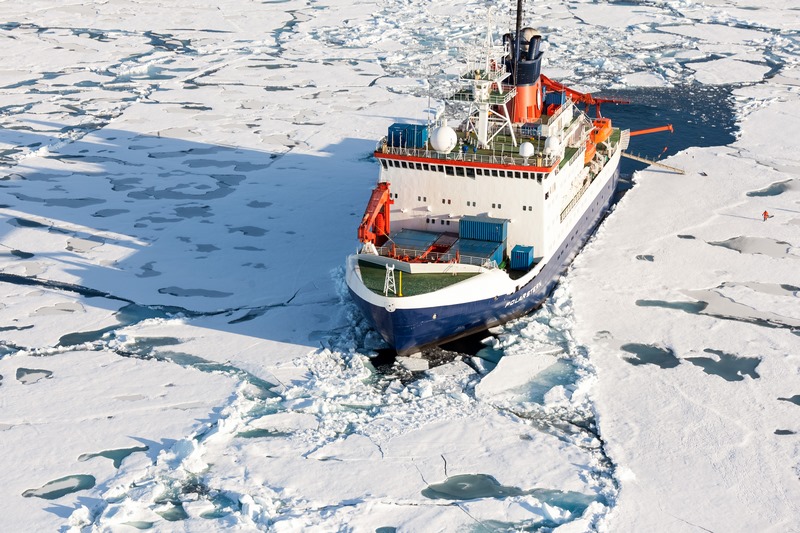
The Polarstern’s Journey to the North Pole
The German research vessel Polarstern recently embarked on an exciting journey to the North Pole. Departing from Tromsø, Norway on August 3, the vessel set sail with a crew of 44 and 53 scientists, ready to embark on an expedition of scientific discovery.
Departure from Tromsø, Norway
Tromsø, Norway served as the starting point for the Polarstern’s expedition to the North Pole. This picturesque city is located in the Arctic Circle and is known for its beautiful landscapes and vibrant culture. As the Polarstern left Tromsø, anticipation and excitement filled the air, setting the stage for a remarkable journey ahead.
Size of the crew and scientific team
The Polarstern’s crew consisted of 44 individuals who played a crucial role in operating the vessel and ensuring a successful expedition. Additionally, the ship welcomed 53 scientists who brought their expertise in various fields to contribute to the research conducted during the journey. This diverse team worked collaboratively to achieve the objectives of the expedition.
Main objectives of the expedition
The primary focus of the expedition was to evaluate the extent of sea ice in the Arctic and investigate the impact of climate change on the region’s ecosystem. The scientists aboard the Polarstern aimed to collect valuable data that would contribute to a better understanding of the changing environment and its potential consequences.
Previous expeditions by the Polarstern
The Polarstern has a history of conducting groundbreaking expeditions in the Arctic Ocean. In 2019, the vessel embarked on a 389-day journey drifting across ice to conduct an in-depth investigation into the impact of climate change on Earth. This previous expedition laid the groundwork for the current journey, and its findings provided valuable insights that paved the way for further research.
Focus on Sea Ice and Ecosystem Evaluation
Understanding the extent of sea ice in the Arctic is crucial for comprehending the effects of climate change on the region. The Polarstern’s expedition aimed to gather data on sea ice coverage, thickness, and movement patterns. This information would contribute to a better understanding of the changing dynamics of the Arctic and help scientists make accurate predictions about its future.
Investigating the impact of climate change on the Arctic ecosystem was another key focus of the expedition. The scientists aboard the Polarstern studied the various species and their habitats, analyzing how they are adapting to changing conditions. This research provided valuable insights into the vulnerability of the Arctic ecosystem and the potential consequences of further environmental changes.

The importance of sea ice data in climate change research
Sea ice data plays a significant role in climate change research. By monitoring the extent and thickness of sea ice, scientists can track the rate of melting and understand the wider implications for global climate patterns. Additionally, studying sea ice provides insights into the overall health of the Arctic ecosystem, offering a comprehensive understanding of the impact of climate change.
Power Knot Ocean and the LFC Biodigester
Power Knot Ocean, a leading supplier of food biodigesters to cruise lines, joined the Polarstern’s expedition. The vessel was equipped with the LFC biodigester, which played a vital role in managing food waste onboard. This innovative technology allowed the Polarstern to sustain a long-term voyage without the need to store waste until the ship returned to shore.
Overview of Power Knot Ocean
Power Knot Ocean is a company dedicated to providing sustainable solutions for managing food waste. Their expertise lies in the development and implementation of biodigesters, which utilize natural processes to break down organic waste. By converting food waste into grey water, Power Knot Ocean’s biodigesters offer an environmentally friendly solution to waste management.
Introduction to the LFC biodigester
The LFC biodigester, provided by Power Knot Ocean, utilizes a natural process known as aerobic digestion. In this process, microorganisms break down food waste, converting it into grey water. This technology is highly efficient and offers a sustainable alternative to traditional waste management methods.
Role of the LFC biodigester in the expedition
The LFC biodigester played a crucial role in the Polarstern’s expedition. By efficiently managing food waste, the biodigester ensured the ship’s sustainability and environmental friendliness. With the LFC biodigester onboard, the Polarstern could focus on its scientific objectives without worrying about the accumulation of waste during the journey.
Sustaining a Long-Term Voyage with the LFC Biodigester
Managing food waste on long voyages can be a logistical challenge. However, with the LFC biodigester, this process becomes remarkably easy. The biodigester’s efficient operation allows for the continuous breakdown of food waste, eliminating the need for storage and potential odor concerns. This ease of management was crucial for the Polarstern’s long-term sustainability.
The benefits of the LFC biodigester for the Polarstern were numerous. Firstly, it provided a sustainable solution to food waste management, reducing the ship’s overall carbon footprint. Additionally, the biodigester promoted environmental friendliness by converting waste into grey water, which could be safely disposed of without negatively impacting the environment.
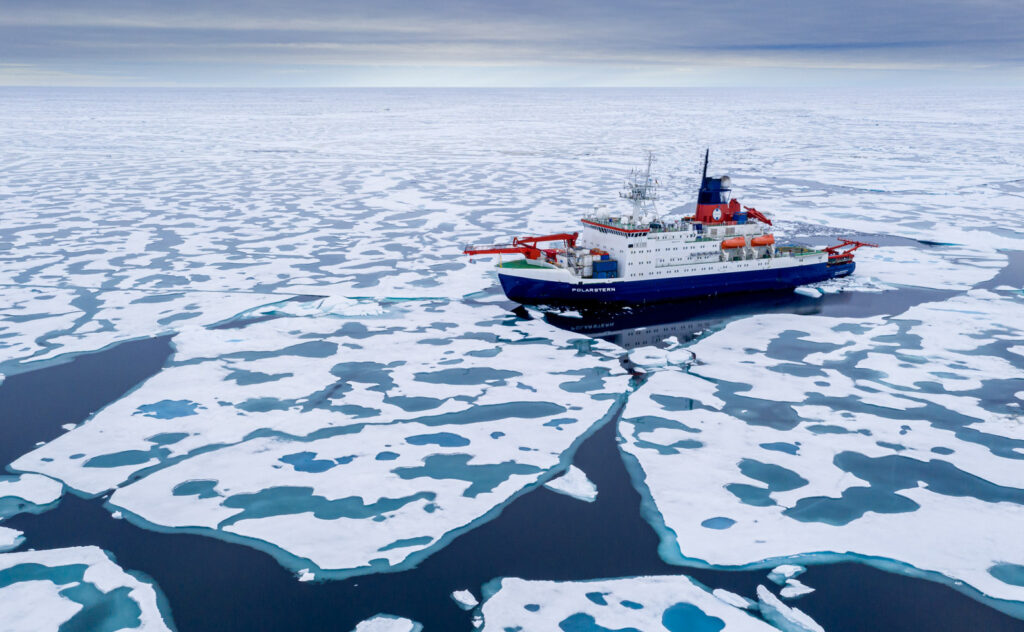
Contributions to sustainability and environmental friendliness
The LFC biodigester’s use on the Polarstern contributed significantly to sustainability and environmental friendliness. By breaking down food waste into grey water, the biodigester minimized waste accumulation and reduced the need for storage or disposal. This efficient process aligned with the expedition’s commitment to responsible environmental practices and set an example for future research vessels.
Natural Process of Aerobic Digestion Used by LFC Biodigester
The LFC biodigester utilizes the natural process of aerobic digestion to break down food waste. In this process, microorganisms play a central role. When food waste is added to the biodigester, microorganisms begin breaking it down through aerobic respiration, a process that requires oxygen.
These microorganisms consume the organic matter, converting it into simpler compounds and releasing byproducts such as carbon dioxide and water. The end result is grey water, which is safe for disposal. This natural process offers an efficient and environmentally friendly solution for food waste management.
Explanation of the aerobic digestion process
Aerobic digestion begins with the introduction of oxygen into the biodigester. This oxygen supports the growth and activity of aerobic microorganisms, which thrive in oxygen-rich environments. As these microorganisms consume the food waste, they break it down into smaller molecules through a series of biochemical reactions, releasing energy in the process.
The efficiency of the aerobic digestion process is further enhanced by the controlled environment within the biodigester. Factors like temperature, moisture, and pH levels are carefully regulated to create optimal conditions for the microorganisms to thrive, ensuring efficient decomposition of the food waste and the production of grey water.
Role of microorganisms in the process
Microorganisms are the key players in the aerobic digestion process. These microscopic organisms belong to various groups, such as bacteria and fungi, and possess the ability to break down complex organic compounds. In the case of the LFC biodigester, specific strains of microorganisms are introduced to promote the decomposition of food waste.
These microorganisms secrete enzymes that break down the food waste into smaller molecules that can be easily metabolized. By feeding on this organic matter, the microorganisms release byproducts in the form of carbon dioxide and water, ultimately transforming the food waste into grey water.
Resulting grey water and its disposal
Grey water, the end product of the aerobic digestion process, is safe for disposal. Once the food waste has been broken down, the remaining liquid is free from contaminants and can be discharged without posing a risk to the environment. This grey water can be further treated or released into appropriate waste management systems, ensuring responsible disposal practices.
Initial Findings from the Polarstern’s Previous Expedition
The Polarstern’s previous expedition, conducted in 2019, had a significant impact on climate change research. This expedition lasted 389 days and involved drifting across ice to gather valuable data on the impact of climate change on the Earth. The findings from this expedition provided valuable insights into the state of the ozone layer and gave rise to data-backed recommendations for future actions.
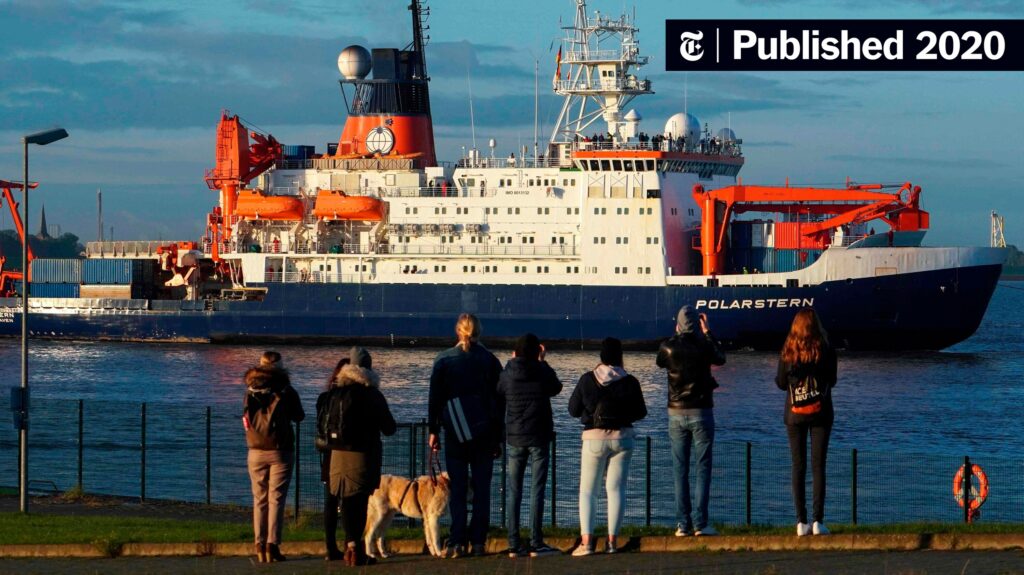
Duration and main focus of the 2019 expedition
The 2019 expedition was a year-long endeavor that aimed to investigate the effects of climate change on Earth. The Polarstern drifted across ice for 389 days, allowing scientists to conduct in-depth research and collect critical data about the changing environment. The primary focus of this expedition was to assess the impact of climate change on the Arctic Ocean and its surrounding areas.
Revelations about damage to the ozone layer
One of the significant findings from the Polarstern’s previous expedition was the revelation about the extent of damage to the ozone layer. The ozone layer, which protects the Earth from harmful ultraviolet radiation, was found to be more extensively affected by climate change than previously thought. This observation highlighted the urgent need for further research and action to reverse the damage.
Data-backed insights and recommendations for future actions
The data collected during the Polarstern’s previous expedition provided insights and recommendations for future actions to mitigate the effects of climate change. Scientists analyzed the vast amount of data obtained to better understand the processes and drivers behind climate change. These data-backed insights resulted in recommendations for policy changes and actions that can be taken at a global level to combat the challenges posed by climate change.
Applause for the Polarstern’s Team
The Polarstern’s successful journey to the North Pole and its significant research contributions deserve applause and recognition. Iain Milnes, President of Power Knot Ocean, extends his congratulations to the team for their achievements and acknowledges the vital role they play in saving our planet. The research conducted by the Polarstern’s team will provide crucial information to help humanity make informed environmental decisions in the near future.
Congratulations from Power Knot’s president
Iain Milnes, President of Power Knot Ocean, expresses his congratulations and gratitude to the Polarstern’s team for their success in reaching the North Pole. He acknowledges the immense importance of their research and commends the dedication and hard work of every individual on board. Milnes recognizes the value of the expedition’s findings in shaping future environmental decisions and emphasizes the significance of the team’s efforts in preserving our planet.
Comments on the importance of the expedition’s research
The research conducted by the Polarstern’s team holds immense importance in the realm of environmental science and climate change research. The data collected during the expedition provides scientists and policymakers with valuable insights into the current state of the Arctic and its vulnerability to climate change. These findings contribute to a better understanding of the global climate system and play a crucial role in shaping future climate change policies and actions.
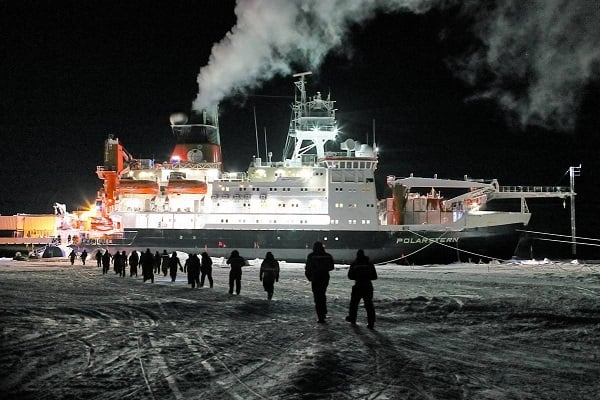
Expectations for future environmental decisions
The research conducted by the Polarstern’s team sets the stage for future environmental decisions. The data, insights, and recommendations generated by their expedition will be pivotal in informing global climate change policies and actions. With a better understanding of the impact of climate change on the Arctic and its surrounding areas, decision-makers can work towards implementing effective measures to mitigate the effects of climate change and protect our planet for future generations.
The Impact of the Polarstern’s Research
The research conducted during the Polarstern’s expedition to the North Pole holds the potential to create a significant impact in several areas. These findings have far-reaching implications for global climate change policy, the scientific community, and future Arctic Ocean expeditions.
Potential effects on global climate change policy
The data collected by the Polarstern’s team has the potential to influence global climate change policy. The comprehensive understanding gained through their research allows policymakers to make well-informed decisions regarding sustainable practices, emission reduction targets, and international agreements. The findings contribute to the growing body of evidence supporting the urgent need for concerted global actions to combat climate change.
Usage of the findings by the scientific community
The findings from the Polarstern’s expedition will be invaluable to the scientific community. These data points provide researchers with a wealth of information to further analyze and enhance existing climate change models. The knowledge gained can aid in developing more accurate predictions of future climate patterns, enabling scientists to understand the complex interactions between various components of the Earth’s climate system.
Implication for future Arctic Ocean expeditions
The Polarstern’s research sets a precedent for future Arctic Ocean expeditions. The success of this journey, coupled with the valuable findings gathered, showcases the importance of continued exploration and research in the region. The data collected by the team will serve as a benchmark for future studies, allowing for the tracking of changes over time and the identification of emerging trends in the Arctic ecosystem.
Benefits of the LFC Biodigester Beyond the Polarstern Expedition
The application of the LFC biodigester extends well beyond the Polarstern’s expedition. This innovative technology has the potential to revolutionize waste management practices in various industries, contributing to a reduction in carbon footprint and promoting environmental sustainability.
Application in the cruise industry
The LFC biodigester holds significant promise in the cruise industry. As cruise ships often generate large amounts of food waste, the biodigester provides a sustainable solution for managing this waste onboard. Implementing this technology in cruise ships can minimize the environmental impact of waste disposal, contributing to a more sustainable and responsible cruise industry.
Contribution to the reduction of carbon footprint
The LFC biodigester plays a crucial role in reducing the carbon footprint of any organization or industry that produces food waste. By converting organic waste into grey water, the biodigester helps minimize the release of greenhouse gases associated with traditional waste disposal methods. This significant reduction in carbon emissions contributes to global efforts to combat climate change and promote a more sustainable future.
Potential applications in other industries
While initially designed for the cruise industry, the LFC biodigester has the potential for widespread application in other industries. Any organization that generates significant amounts of food waste can benefit from this innovative technology. Industries such as hospitality, food manufacturing, and institutional catering can implement the biodigester to improve waste management practices and contribute to environmental sustainability initiatives.
Future of the Polarstern and its Environmental Exploration
The Polarstern’s expedition to the North Pole marks the beginning of an ongoing commitment to environmental exploration. The vessel continues to push the boundaries of scientific research and environmental sustainability, with planned future expeditions that will build upon the foundation laid by previous journeys.
Planned future expeditions
The Polarstern is set to embark on future expeditions that will further contribute to our understanding of the Arctic environment and its response to climate change. These expeditions will continue to gather critical data to support informed decision-making and shape future environmental policies.
Continued use of the LFC biodigester
The success of the LFC biodigester on the Polarstern has paved the way for its continued use on future expeditions. The biodigester’s efficiency, sustainability, and environmental friendliness have made it an indispensable tool for waste management onboard the vessel. Its continued utilization guarantees the Polarstern’s ongoing commitment to responsible environmental practices.
Expected impacts on continued climate change research
The Polarstern’s future expeditions, combined with the utilization of the LFC biodigester, will have a significant impact on continued climate change research. The data collected and the insights gained from these voyages will contribute to a more comprehensive understanding of the Arctic environment and its response to ongoing climate change. This research will be crucial in shaping future environmental policies and guiding humanity’s actions in the face of global climate challenges.
In conclusion, the journey of the Polarstern to the North Pole signifies a remarkable undertaking in the field of scientific research and environmental exploration. The extensive data collected, coupled with the innovative use of the LFC biodigester, contributes to our understanding of climate change and its impact on the Arctic ecosystem. The findings from this expedition will fuel further research and decision-making to forge a sustainable future for our planet. The Polarstern’s commitment to environmental sustainability serves as an inspiration for future expeditions and the pursuit of a more responsible and sustainable world.


